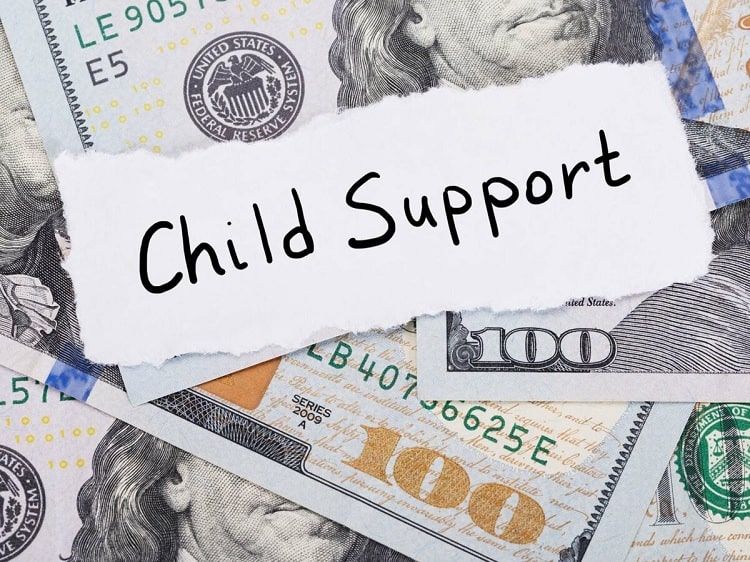DC Child Support Calculator (Washington) | Guidelines – 2024
If you’re a parent going through a divorce or have never been married to your child’s other parent and are ending your relationship, you may need child support information. Whether married or not, both parents are required to support their children in the District of Columbia (DC).

The “Income Shares Model” is used in DC helps to use the Washington DC Child Support Calculator, which means that the amount parents would spend on their children if both parents and children lived in the same household (as if the family were still intact) is estimated and then divided between the parents depending on their salaries.
How child support is calculated in Washington DC
You’ll need to know the details of the custody arrangement in order to utilize the Washington DC Child Support Calculator. If one parent has physical custody of a child for more than 65 percent of the time (more than 237 days a year), the sole custody formula to calculate is used, which splits the support amount solely on the basis of the income share in the DC child support worksheet.
The parent who invests less time with the child pays assistance to the other parent under the single custody’s formula to calculate average child support. Courts infer that the custodial parent’s child support payment is already going toward the child’s day-to-day expenses.
Use the shared custody calculation, which multiplies the basic child support requirement (from the schedule in the guidelines) by 1.5 if each parent has physical custody of a child for at least 35 per cent of the time (128 days per year).
This increase recognises that total child care expenditures are higher when both parents sustain a child’s essentially full-time housing. The additional assistance amount is then divided between the parents based on their incomes (including alimony) and parenting time (percentage of time or number of days per year that a child spends with each parent).
This is a step-by-step procedure in the DC child support worksheet. The calculator will easily calculate the ultimate amount that one parent will pay to the other, and the instructions will explain each stage of the calculation.
District of Columbia Child Support Guidelines
Judges in DC who order child support use the most recent iteration of the Child Support Guidelines.
A Schedule of Basic Child Support Obligations is included in the guidelines, which specifies the total amount of support both parents must pay depending on their combined gross wages and the number of children they share.
Each parent is allotted a share of the total support obligation based on their income percentage. If parent A earns $60,000 per year and parent B earns $40,000 per year, parent A is accountable for 60% of the support amount (60,000 divided by 100,000), while parent B is responsible for 40% of the support amount (40,000 divided by 100,000).
To get an exact child support number, you’ll have to go through a few processes, and the requirements are pretty complicated and tough to understand. The DC automatic child support calculator is a much easier approach to get a general idea of how much one parent could have to pay the other.
If you have any doubts about the criteria, using the calculator, or whether the assessment is realistic in your circumstance, you should seek legal advice.
Deviations from DC Guidelines
If the court considers it is appropriate, the court may order an amount that differs from the guideline amount (called a “deviation”). A judge may rule that a deviation is reasonable if a kid has extraordinary expenses linked to schooling or special needs or if a parent has extraordinary charges such as financial responsibility for an older parent.
Extra information on scenarios that may necessitate variances is included in the guidelines. If a judge believes that an extraordinary case warrants a deviation, the reasons must be included in the court record.
Imputing or Attributing Income
Unfortunately, some parents try to avoid paying child support by abandoning their jobs or failing to conduct a thorough job search. For example, a parent may leave a well-paid, highly-skilled career to take a lower-earning job in the misguided notion that the reduced wage will allow them to avoid paying child support. This type of behaviour is unlikely to be tolerated by the courts.
Suppose a court determines that either parent is voluntarily unemployed and underemployed. In that case, it may calculate child support depending on the parent’s potential earnings potential (what the parent could earn based on aspects of work history, mentoring, schooling, and available jobs in the area) rather than the income from a lower-paying job.
Adjustments for Additional Expenses
After assessing the basic support obligation, you can make some restricted modifications for things like health care premiums, unusual health costs, and child care costs that either parent is responsible for.
Whether you use the single parenting or shared parenting formula to calculate, you’ll divide responsibility for these expenses solely on the basis of income share, with no consideration for parenting time.
Modification and Termination of DC Child Support
A parent who wishes to amend or change an average child support order must demonstrate a significant and material change in status after the court has made the initial order. An example will be if a child has established special needs that necessitate higher-than-average spending.
Suppose the gap between an existing judgment and the amount estimated by new development and assessment of the current standards differs by more than 15%. In that case, courts will generally infer that a modification is appropriate.
This isn’t always the case, and even a 15% difference in income won’t always warrant a change in the support order. A sample motion to alter child support can be found here.
Parents must exchange accounting reports at least once every three years under DC law. Parents are encouraged to make voluntary modifications to an average child support payment if new financial information would result in a change under the standards.
In DC, the age of majority (legal maturity) is 18. Regardless, a child support obligation lasts until the child is 21, unless the youngster marries, enters the military, or becomes self-sufficient before then.
DC Child Support Enforcement
The Child Support Services Division (CSSD) of the District of Columbia is in charge of assisting parents in obtaining and enforcing child support orders, as well as establishing paternity if applicable, and determining the child support by the Washington DC Child Support Calculator.
How long do you pay child support in DC?
Unless the child is emancipated, the responsibility to provide child support in DC lasts until the child is 21 years old. Emancipation can occur before the kid reaches the age of 21 if the child marries, enters the military, or becomes self-sufficient.
The state that imposed the initial child support order determines the emancipation age. Even if the parents later moved to another state where the emancipation age is lower, if DC issues the initial support order, the emancipation age will be 21.
Faqs
Who can receive child support?
When a child spends the majority of his or her time with one parent, that parent has a legal entitlement to child support from the other. To collect child support, a parent does not need a court order awarding him or her legal or physical possession of the kid.
When can I file a child support case?
A child support lawsuit can be filed in DC at any time after the fourth month of gestation but before the kid reaches the age of 21.
What if someone else, such as a grandparent, is taking care of the child?
When a child spends the majority of his or her time with someone other than his or her parents (a caregiver), that person has a legal entitlement to child support from the parents. Grandparents, extended relatives, godparents, and others may act as caregivers. Caregivers can seek child support from either one or both parents. To receive child support, a caregiver does not need a court order providing him or her legal or physical custody of the kid.
Who needs to pay child support?
When a child spends the majority of his or her time with one parent, the parent who does not reside with the child or visits the child is usually obligated to pay child support.







